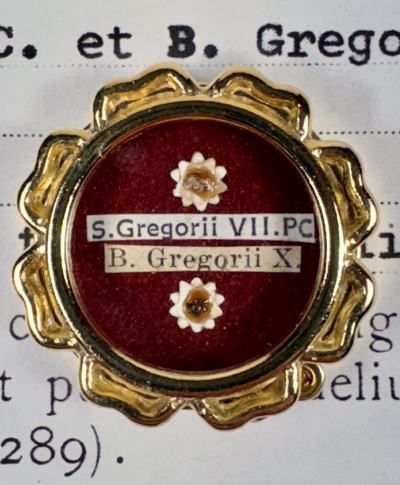Saint Pope Gregory VII (†1085) was head of the Catholic Church and ruler of the Papal States from 1073 to his death. One of the great reforming popes, he initiated the Gregorian Reform and is perhaps best known for the part he played in the Investiture Controversy, his dispute with Emperor Henry IV to establish the primacy of papal authority and the new canon law governing the election of the pope by the College of Cardinals. He was also at the forefront of developments in the relationship between the emperor and the papacy during the years before he became pope. He was the first pope to introduce a policy of obligatory celibacy for the clergy, which had until then commonly married and also attacked the practice of simony. Gregory VII was beatified by Pope Gregory XIII in 1584 and canonized on 24 May 1728 by Pope Benedict XIII. His Feastday is commemorated on 25 May.
Blessed Pope Gregory X (†1276) was head of the Catholic Church and ruler of the Papal States from 1271 to his death and was a member of the Secular Franciscan Order. He was elected after a papal election from 1268 to 1271, the longest papal election in the history of the Catholic Church. He convened the Second Council of Lyon and also made new regulations regarding the papal conclave. Gregory was beatified by Pope Clement XI in 1713 and his Feastday is commemorated on 10 January.








 Поменять язык на русский
Поменять язык на русский 